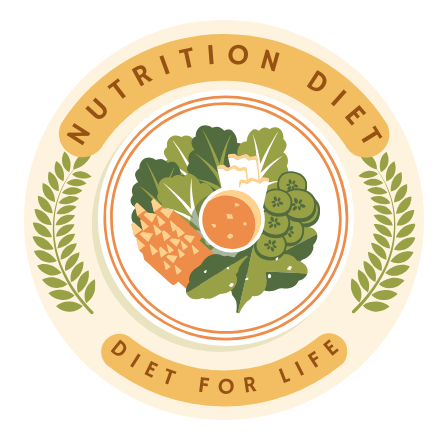The growing awareness of environmental sustainability and its links to individual health has made the topic of sustainable eating a critical concern. Sustainable eating refers to food choices that are not only beneficial to an individual’s well-being but also contribute to the health of the planet. This growing emphasis on sustainable food systems has made nutrition education essential, as it helps individuals understand the implications of their food choices on both their health and the environment. This article will examine the role of nutrition education in fostering sustainable eating habits, its importance in public health, key strategies for promoting such habits, and the challenges involved in this endeavor.
Defining Sustainable Eating
Sustainable eating is an approach to food consumption that prioritizes:
- Environmental Responsibility: Sustainable eating seeks to minimize the ecological impact of food production, including reducing carbon emissions, water usage, and waste generation. It encourages the consumption of plant-based foods, which generally have lower environmental footprints than animal-based products.
- Health: A sustainable diet is one that supports long-term human health, emphasizing whole foods, nutrient-dense ingredients, and balanced meals that prevent chronic diseases such as obesity, diabetes, and cardiovascular diseases.
- Social Justice and Equity: Sustainable food systems promote fair labor practices, equitable access to healthy food, and a reduction in global hunger. Sustainable eating includes the principles of food sovereignty, where communities have the right to define their food systems and have access to affordable, nutritious food.
In essence, sustainable eating encourages a holistic approach to food consumption that meets the needs of present generations without compromising the ability of future generations to meet their own needs.
The Growing Need for Sustainable Eating
Sustainable eating has never been more important. The world’s population is expected to reach nearly 10 billion by 2050, and food production systems will face unprecedented pressure. As the demand for food increases, so too does the strain on our natural resources. Agriculture accounts for about 25% of global greenhouse gas emissions, primarily from livestock production, deforestation, and the use of synthetic fertilizers. In addition, food waste is a significant contributor to both environmental degradation and hunger, with nearly one-third of the food produced globally going to waste.
Parallel to these environmental concerns, global health trends are also a cause for concern. Poor diet is a leading cause of morbidity and mortality worldwide. Diets rich in ultra-processed foods, red meat, and sugar have been linked to rising rates of obesity, heart disease, diabetes, and other non-communicable diseases. As such, promoting sustainable eating habits is not just about addressing environmental challenges but also tackling the growing public health crisis associated with poor nutrition.
Given these challenges, it is clear that nutrition education is a powerful tool in influencing dietary behaviors and promoting a more sustainable, health-conscious food system.
The Role of Nutrition Education in Sustainable Eating
Nutrition education is the process of imparting knowledge about food, nutrition, and health, equipping individuals with the skills needed to make informed dietary choices. In the context of sustainable eating, nutrition education serves multiple purposes:
Raising Awareness About the Interconnectedness of Food, Health, and the Environment
Many people are unaware of the environmental consequences of their food choices. For example, conventional meat production is highly resource-intensive, requiring large amounts of water, feed, and land. Additionally, livestock farming contributes significantly to methane emissions, a potent greenhouse gas. By educating people about the environmental impacts of different food choices, nutrition education helps individuals understand how their personal food consumption contributes to global environmental issues.
Similarly, nutrition education emphasizes how healthy diets—such as those rich in plant-based foods—are not only beneficial for health but also more sustainable. Foods like vegetables, legumes, and whole grains generally have a smaller environmental footprint compared to animal-based products like beef, which is a significant contributor to land degradation, deforestation, and high water use. When individuals recognize the impact their food choices have on the planet, they are more likely to adopt sustainable eating habits.
Empowering Consumers to Make Sustainable Choices
An essential component of nutrition education is empowering individuals to take control of their health and food choices. By providing practical tools, resources, and knowledge, nutrition education helps individuals make decisions that align with both their health and environmental goals. For example, consumers may be taught how to identify more sustainable food options in grocery stores, such as those that are organic, locally grown, or fair trade certified. They may also learn about the environmental benefits of choosing plant-based proteins over animal products or reducing food waste through better planning and storage techniques.
Moreover, nutrition education fosters the understanding that small changes in food consumption—such as incorporating one plant-based meal per day or choosing sustainably sourced seafood—can collectively have a significant positive impact on health outcomes and environmental sustainability.
Influencing Behavior Change
The transition from awareness to behavior change is often the most challenging aspect of promoting sustainable eating. Many individuals may be aware of the health and environmental benefits of sustainable eating but struggle to apply this knowledge in their daily lives. This is where nutrition education plays a crucial role. By providing actionable advice and strategies, it helps individuals make sustainable choices in practical ways.
For example, individuals can learn how to cook balanced, plant-based meals that are not only nutritious but also cost-effective and easy to prepare. They may also learn about food waste reduction strategies, such as meal prepping, using leftovers creatively, and composting organic waste. Nutrition education can even include practical tips for making sustainable eating affordable, which is particularly important in communities with limited access to high-quality food.
Promoting Public Health and Long-Term Wellness
Sustainable eating habits are inherently linked to long-term health outcomes. A well-balanced diet that is rich in fruits, vegetables, whole grains, and healthy fats can reduce the risk of chronic diseases such as obesity, heart disease, diabetes, and certain cancers. However, many traditional diets are still dominated by processed foods, sugary beverages, and unhealthy fats, leading to a rise in these preventable conditions.
Through nutrition education, individuals can learn about the critical importance of making healthier food choices and how these choices support both personal and planetary health. For instance, by reducing meat consumption and incorporating more plant-based foods, individuals can lower their risk of heart disease while also reducing their environmental impact.
Key Strategies for Promoting Sustainable Eating Through Nutrition Education
In order to effectively promote sustainable eating habits, several strategies must be employed across different sectors. These strategies can be tailored to various age groups, socioeconomic backgrounds, and geographical regions to maximize their effectiveness.
Integrating Sustainable Eating into School Curricula
Education about sustainable eating should begin early, ideally in schools, where children and adolescents are most impressionable. By including sustainability topics within nutrition and health curricula, students can learn about the interconnectedness of food systems, health, and environmental sustainability.
In schools, children can be taught the importance of consuming locally grown, seasonal foods and the environmental and health benefits of plant-based diets. They can also engage in hands-on activities, such as growing their own vegetables or participating in community-based food programs. Furthermore, children who are educated about food sustainability are more likely to carry these principles into adulthood and influence the eating habits of their families.
Public Health Campaigns and Media Outreach
Mass media campaigns play a vital role in shaping public perceptions and behaviors. Governments and nonprofit organizations can use television, radio, print media, and social media to disseminate information about sustainable eating habits. For example, campaigns that highlight the benefits of reducing meat consumption, minimizing food waste, or eating more plant-based meals can help shift societal norms and encourage behavior change.
Public health campaigns can also focus on the positive aspects of sustainable eating, such as the benefits of seasonal eating, cooking from scratch, and supporting local food producers. Additionally, nutrition experts can use platforms like blogs, podcasts, and webinars to provide in-depth resources and discussions on sustainable eating.
Community-Based Programs and Initiatives
Community-based nutrition education programs have a significant impact on promoting sustainable eating. These programs can be especially effective in underserved or low-income communities, where access to nutrition education and healthy food options may be limited. Initiatives such as community gardens, cooking workshops, and farmers’ markets provide opportunities for individuals to learn how to grow, prepare, and purchase sustainable foods.
Moreover, these programs foster a sense of community and shared responsibility, helping participants understand how collective efforts can lead to meaningful change. For instance, community members can exchange recipes, learn from each other’s experiences, and collaborate on initiatives to reduce food waste or support local farmers.
Leveraging Technology and Social Media
In today’s digital world, technology can be a powerful tool in promoting sustainable eating habits. Social media platforms like Instagram, YouTube, and TikTok are often used by nutritionists, chefs, and sustainability advocates to share tips, recipes, and ideas for sustainable eating. Digital platforms allow for wide dissemination of information, reaching a large and diverse audience.
In addition, mobile apps and websites that help individuals track their food choices, identify the environmental impacts of their meals, or access sustainable recipes can support behavior change. Apps that promote meal planning, shopping for seasonal foods, or reducing food waste can help users integrate sustainable practices into their everyday lives.
Policy Advocacy and Institutional Support
Government policies can have a profound effect on shaping food systems and supporting sustainable eating habits. Advocating for policies that promote the availability of healthy, sustainable food—such as subsidies for plant-based products or tax incentives for local farmers—can make sustainable eating more accessible and affordable for all.
Nutrition education programs should also advocate for stronger food labeling regulations, ensuring that consumers are well-informed about the environmental impacts of the foods they buy. Public institutions, such as schools and hospitals, can also lead by example by providing sustainable, healthy food options in their cafeterias.
Challenges in Promoting Sustainable Eating
Despite the potential benefits, promoting sustainable eating faces several challenges that must be addressed to ensure success.
Socioeconomic and Accessibility Barriers
One of the most significant barriers to sustainable eating is the cost and accessibility of healthy, sustainable food. In many low-income areas, access to fresh produce, organic foods, and plant-based options is limited, making it difficult for residents to follow sustainable eating principles.
To address these challenges, nutrition education programs must emphasize budget-friendly strategies, such as buying in-season produce, shopping at local farmers’ markets, and reducing food waste. Community initiatives such as food cooperatives, urban gardens, and farm-to-table programs can also help bridge the gap by providing affordable access to sustainable food.
Cultural and Behavioral Norms
Cultural and social norms also play a role in shaping food choices. In many cultures, meat is an integral part of traditional diets and is considered a status symbol or a source of strength and vitality. Changing these deeply ingrained beliefs and behaviors can be challenging.
Nutrition education must therefore be culturally sensitive and take into account local food traditions. It should focus on ways to incorporate sustainable practices within these cultural contexts rather than impose drastic changes. This might involve suggesting alternative protein sources, like legumes or plant-based meat substitutes, that align with traditional culinary preferences.
Knowledge Gaps and Misconceptions
Despite the growing awareness of sustainable eating, misconceptions and gaps in knowledge still exist. For example, some individuals may believe that sustainable eating is overly complex or time-consuming, or they may be unaware of the environmental benefits of reducing food waste.
Nutrition education must be clear, accessible, and evidence-based to address these misconceptions. It should emphasize practical, easy-to-implement strategies that demonstrate how small changes can lead to significant health and environmental improvements.
Conclusion
Nutrition education is a powerful tool for fostering sustainable eating habits, empowering individuals to make informed food choices that align with health, environmental sustainability, and social equity. It bridges the gap between knowledge and action by raising awareness, offering practical guidance, and encouraging behavior change. By emphasizing the interconnectedness of diet, planetary health, and social justice, nutrition education plays a crucial role in shaping a food system that supports both human well-being and environmental resilience.
Integrating sustainable eating principles into various platforms is essential for creating lasting change. Schools can incorporate these concepts into their curricula, helping young learners understand the importance of balanced, eco-friendly diets. Public health campaigns can reach broader audiences, highlighting the benefits of sustainable eating and providing clear, actionable steps for adopting these practices. Community-based initiatives, such as workshops and local food programs, offer hands-on learning opportunities that resonate with diverse groups. Additionally, digital platforms and social media can amplify these efforts, leveraging technology to disseminate information widely and engage audiences interactively.
Despite its potential, nutrition education faces challenges that must be addressed for widespread impact. Accessibility remains a critical issue, as many communities lack access to nutritious, affordable, and sustainable food options. Cultural norms and dietary preferences must also be considered to ensure that messages resonate and are practical for diverse populations. Furthermore, bridging knowledge gaps requires targeted efforts to make nutrition education relevant, engaging, and inclusive.
By investing in nutrition education and aligning it with supportive policies, we can catalyze a shift toward healthier, more sustainable food systems. These efforts not only promote individual and community well-being but also contribute to global goals of environmental conservation and social equity, paving the way for a resilient and inclusive future.
SOURCES
BROWN, A., 2019. Sustainable diets: The influence of nutrition education on food choice behavior. Journal of Nutrition Education, 51(3), 123-130.
JAMES, P., 2021. Understanding sustainable eating: A guide for educators. Public Health Nutrition Review, 34(2), 45-59.
HENDERSON, S., & WILLIAMS, J., 2020. The impact of plant-based eating on the environment. Environmental Health Perspectives, 128(4), 245-253.
TURNER, C., & ROBINSON, M., 2018. Linking nutrition and sustainability in public health education. Journal of Global Nutrition, 40(6), 302-311.
JONES, R., & PARKER, D., 2022. Behavioral change in nutrition education: Case studies from community-based programs. International Journal of Public Health, 67(5), 412-423.
LEE, M., & BAKER, L., 2020. Overcoming barriers to sustainable eating: The role of nutrition education in low-income communities. American Journal of Clinical Nutrition, 112(1), 102-110.
THOMPSON, G., & WILKINS, M., 2021. Food sustainability and the future of public health nutrition. Sustainability in Health Systems, 8(3), 215-224.
SMITH, H., & MARTIN, E., 2019. The role of media in promoting sustainable diets. Journal of Food Science and Policy, 28(7), 563-573.
MURPHY, K., & GARCIA, A., 2023. Nutrition education strategies in schools: Integrating sustainable eating practices into curricula. Journal of School Health, 93(8), 350-357.
PARKER, S., & COLEMAN, F., 2018. Nutrition education and sustainable eating habits: Approaches in public health campaigns. Global Health Review, 24(2), 134-142.
WILLIAMS, J., & FOSTER, B., 2022. Policy and nutrition education: Advancing sustainable food systems. Food Policy Research Journal, 51(2), 190-199.
RILEY, D., & WASHINGTON, L., 2020. Teaching sustainable eating in the digital age: The power of apps and online resources. Journal of Nutrition Education and Behavior, 52(4), 251-258.
YOUNG, P., & NASH, M., 2021. The cultural challenges of promoting sustainable eating in diverse communities. Journal of Nutrition and Cultural Studies, 16(3), 188-197.
SANDERS, A., & COOPER, S., 2019. Nutrition education in the digital era: Engaging millennials with sustainable food choices. Public Health Education Journal, 62(6), 509-517.
HISTORY
Current Version
December 02, 2024
Written By:
SUMMIYAH MAHMOOD


